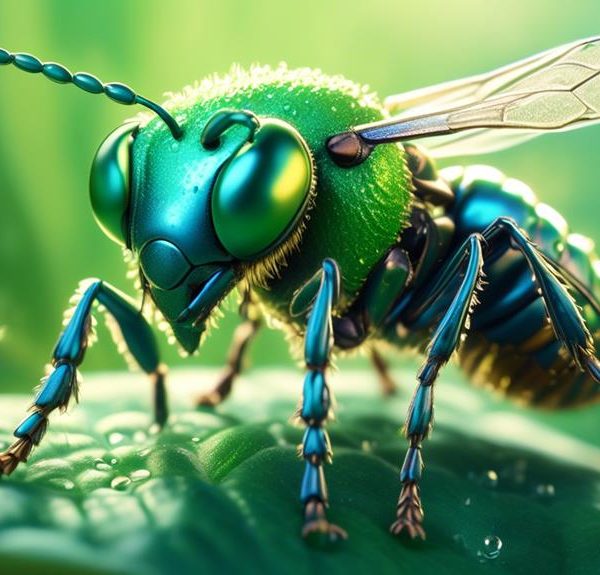Unmasking the truth about sweat bees: are these tiny, sweat-loving insects as harmless as they seem?
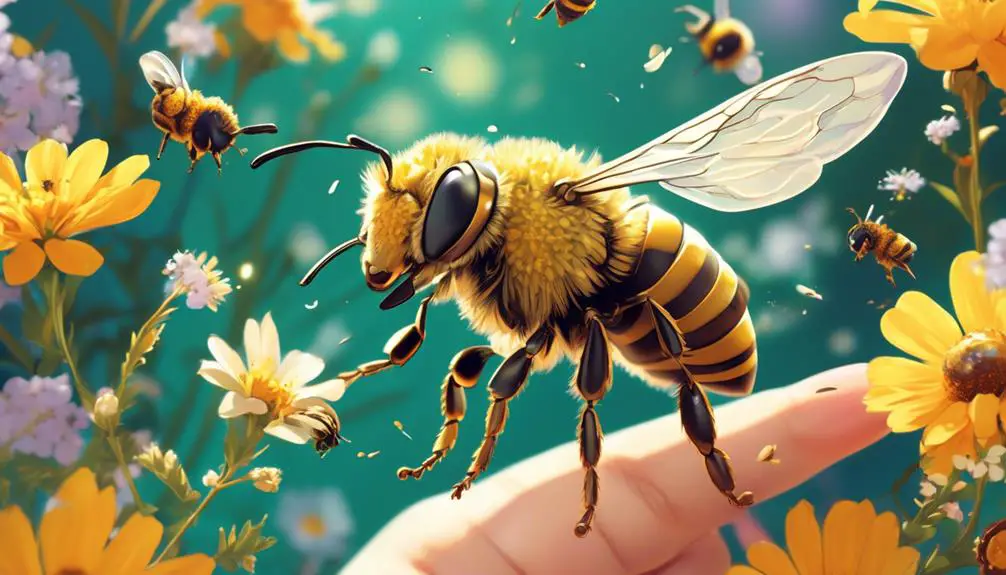
Are Sweat Bees Harmless
By some strange coincidence, you've probably had an encounter with a sweat bee without even knowing it. These tiny insects, attracted to the salt in human sweat, are common across the globe and often mistaken for flies due to their small size and metallic coloring.
But are they harmless? It's understandable if you're questioning whether these bees pose a threat despite their seemingly innocent behavior. This consideration, while largely overlooked, is essential, particularly for those spending a considerable amount of time outdoors.
But before you let your imagination run wild, let's take a moment to examine the facts, shall we?
Key Takeaways
- Sweat bees are attracted to human sweat but are not aggressive.
- The sting of a sweat bee is usually mild, similar to a mosquito bite.
- Sweat bees play a crucial role in pollination and are important for the growth of fruits, vegetables, and fabrics like cotton.
- For most people, sweat bees are not a significant threat and interactions with them are harmless.
Understanding Sweat Bees
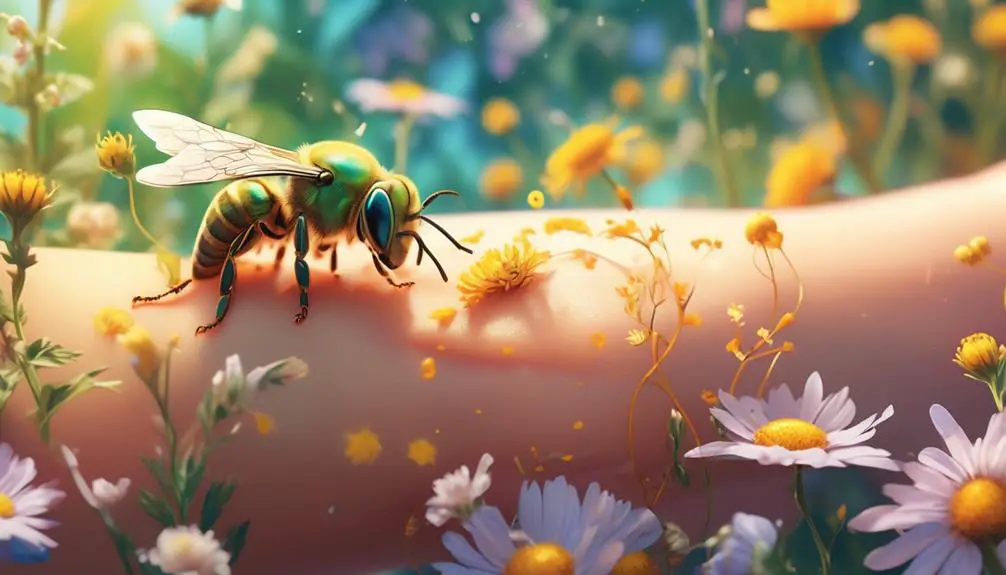
Let's dive into understanding sweat bees, tiny insects attracted to the salt in human perspiration. You may have noticed these bees buzzing around your backyard garden or local park. However, they're not your typical bees. Instead, they're small, often metallic-colored insects, and there are thousands of species worldwide.
You may wonder, 'Are they harmful?' Well, sweat bees aren't as menacing as they might sound. They're generally non-aggressive and only sting when threatened. If you're calm around them, they're unlikely to bother you. That sting, by the way, is considerably less painful than that of other bees.
Sweat bees play a crucial part in pollination, just like their larger, more familiar cousins. They're attracted to diverse flowers and plants, aiding in their pollination process. You might be surprised to know that many fruits, vegetables, and even some fabrics like cotton owe their existence to these tiny bees.
Sweat Bees Behavior and Lifestyle

Now that you're familiar with the general characteristics and importance of sweat bees, it's time to explore their behavior and lifestyle. Unlike honey bees that live in large colonies, sweat bees are solitary creatures. They build nests in the ground or in wood, where they lay their eggs.
Their name, sweat bees, comes from their attraction to human sweat. They're drawn to the salt in your sweat, but don't worry, they're not aggressive. They'll only sting if they feel threatened or trapped. Interestingly, it's the female sweat bee that stings, while the males can't.
Sweat bees are polylectic, which means they collect pollen from a variety of plants. This makes them super important for plant pollination. Their small size allows them to access flowers that larger bees can't, increasing the diversity of plants they pollinate.
They're also known for their metallic coloring, varying from dull brown to bright green or blue. This adds a touch of beauty to their functional role in our ecosystem.
The Truth About Sweat Bee Stings
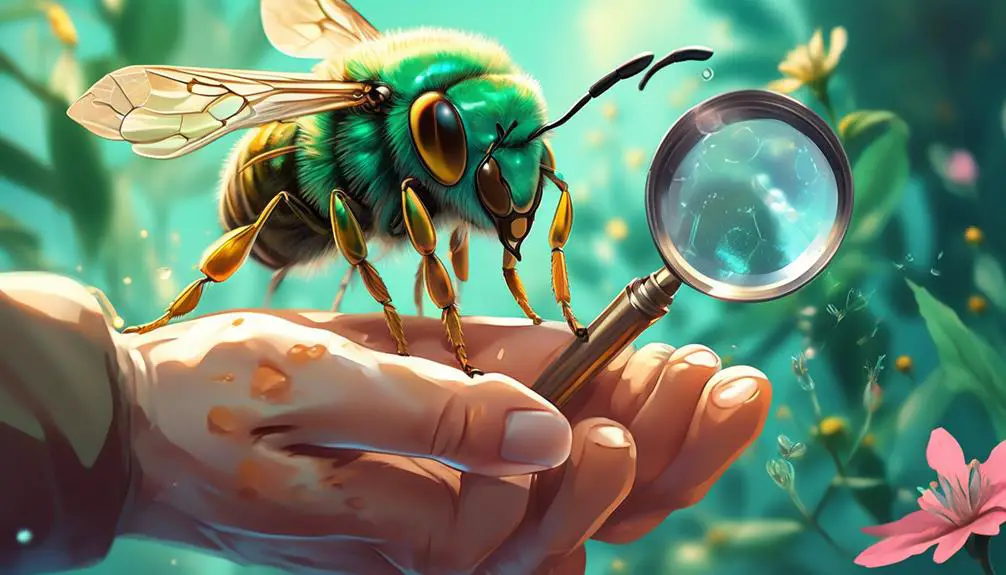
Despite their peaceful nature, it's important to understand the reality of a sweat bee's sting and how it can affect you. Contrary to popular belief, sweat bees can indeed sting, but they typically only do so if threatened. They're not aggressive by nature, so you're safe as long as you're not provoking them.
When a sweat bee does sting, it's usually a mild experience. You might feel a slight burning sensation, similar to the sting of a mosquito. The sting site could also turn red and swell a bit, but it's not a cause for alarm. You'll likely feel discomfort for a short while, but it should subside soon.
However, you should take note if you're allergic to bee stings. If you experience symptoms like difficulty breathing, hives, or severe swelling, seek medical attention immediately. These could be signs of an allergic reaction.
Sweat Bees and Human Interaction

Surprisingly, most human encounters with sweat bees occur without any problems, as these tiny insects are more interested in your perspiration than causing you harm. They're likely to be attracted to you if you're sweating, but don't worry, they're not out to sting you. They just want the salt in your sweat.
To visualize this, consider the following:
- You're out gardening on a warm summer day. You're sweating, and suddenly, you notice a tiny bee hovering around you.
- It lands on your skin, but instead of feeling a sting, you just feel a slight tickle.
- The sweat bee is just lapping up your sweat, it's not interested in attacking you.
- After it's had its fill, it simply flies away, leaving you unharmed.
This is a typical interaction with a sweat bee. They're not aggressive and will only sting if they feel threatened. So next time you see a sweat bee buzzing around you, just remember, it's not out to get you. It's more interested in your sweat than anything else. So you can just relax and let it do its thing.
Assessing the Threat of Sweat Bees
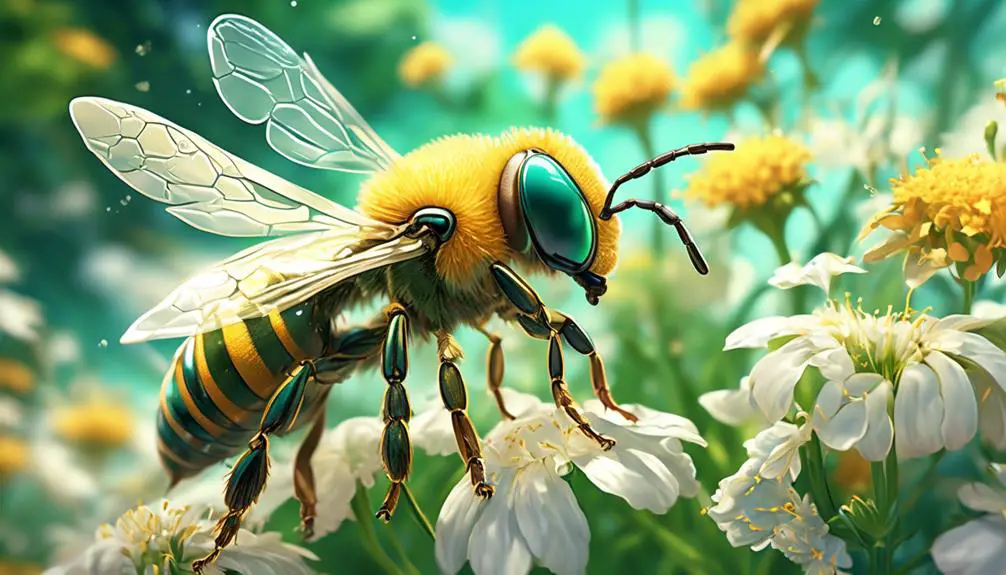
So, how threatening are sweat bees really? The truth is, you've likely got nothing to fear. These petite pollinators are generally non-aggressive and only sting when provoked. Even then, their sting is minor, often compared to a mosquito bite.
However, it's important to remember that like all bees, sweat bees are a part of our ecosystem. They play a crucial role in pollinating plants, so don't swat them away carelessly. Instead, try to coexist peacefully with these little helpers. They're attracted to human sweat, hence their name, but they don't pose a significant threat to you.
If you're allergic to bee stings, of course, your situation might be different. A sting from a sweat bee could cause an allergic reaction. In such a case, it's better to steer clear of them and seek immediate medical attention if you're stung.
But for the average person, sweat bees aren't a threat. They're just another insect going about their business, contributing to the balance of our environment. So, when you see a sweat bee, don't panic. They're more interested in your sweat than causing you harm.
Conclusion
So, are sweat bees harmless? Generally, yes. They're mostly interested in your sweat, not causing you harm. However, like any bee, they can sting if provoked. Thankfully, their stings are less painful than those of other bees.
Keep in mind, they're essential pollinators, so let's coexist peacefully. Remember, sweat bees aren't out to get you, they're just living their life, and the threat they pose is minimal.

